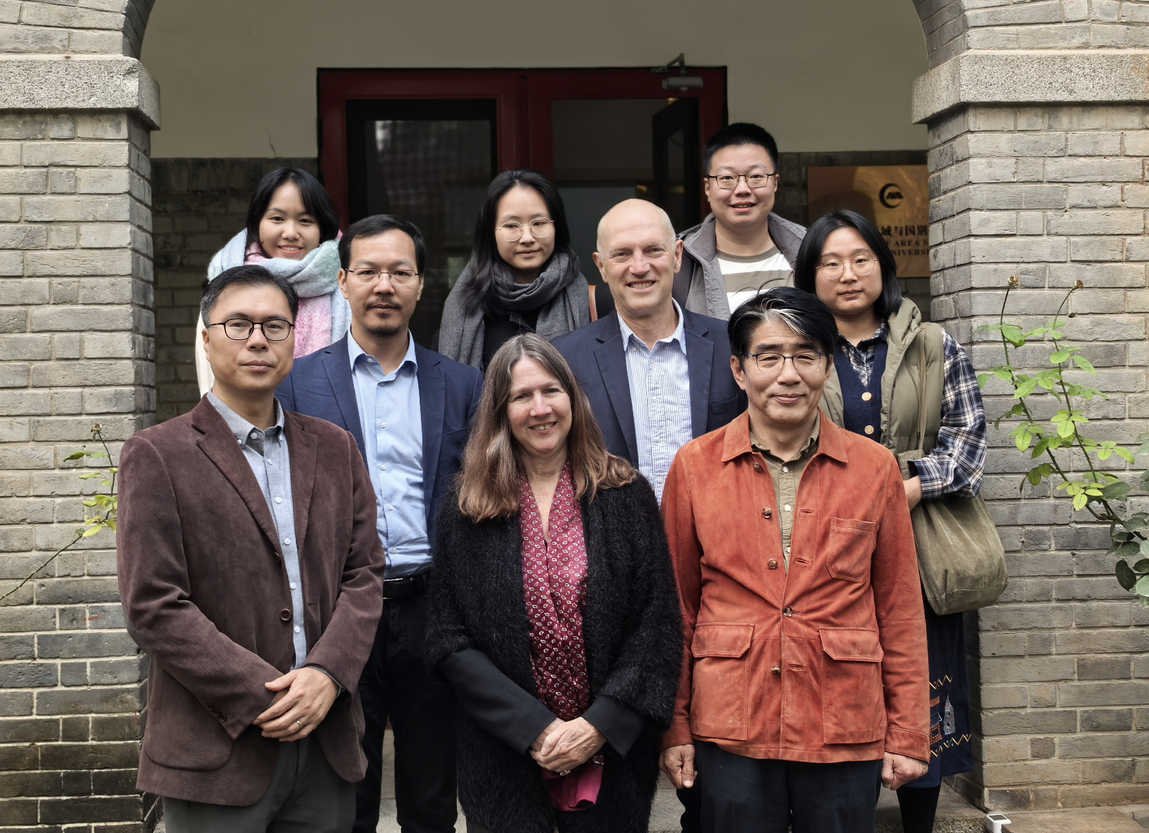
The 31st session of the “Adventus Amicorum” seminar series organized by the Institute of Area Studies Peking University (PKUIAS) took place on October 25, 2024. The seminar featured Prof. Kerry Rittich from the University of Toronto, Canada, as the main speaker. The event was moderated by Prof. Zhang Yongle, deputy director of PKUIAS. The discussants included Sean Cooney, professor at the Law School of the University of Melbourne and a consultant to the International Labour Organization; Lee Chang-Hee, director of the International Labour Organization Country Office for China and Mongolia; Lei Shaohua, associate professor at the School of International Relations at Peking University; and Hu Lin and Chen Yifeng, associate professors at the School of Law at Peking University.
Prof. Rittich focused on her recently published paper, titled “In the Middle of Things: The Political Economy of Labour Beyond the Market.” Using the concepts of unpaid labor and informal labor as starting points, she explored how these marginalized forms of work offer unique insights into equality and justice issues in the global economy, especially in an era of multiple crises. Her analysis also offered new perspectives on the political economy of labor under today’s historical contexts.
First, Prof. Rittich highlighted the importance of “background rules” in shaping economic relationships and introduced four categories of family law that she and her colleagues have developed. She then analyzed the nature of inequality in the current era, arguing that today’s economic crises are fundamentally crises of labor, rooted in the unequal distribution of gains between labor and capital. Macroeconomic governance during the pandemic underscored the feedback mechanisms between households and markets as well as their economic interdependence, thereby providing a broader context for understanding the challenges surrounding marginalized laborers today.
Prof. Rittich argued that to fully understand political economy, one must pay attention to the spaces, groups, and forms of work that exist beyond the market. She explained that the formation of legal rules and markets was a co-constructed process, with boundaries between markets and external spaces such as households being shaped simultaneously. In her view, the unequal distribution between unpaid domestic labor and paid labor largely contributes to economic inequality. With the economic concept of “externality”, she demonstrated the significant socio-economic value of unpaid labor and called for legal reforms to restore the value that has been overlooked.
Subsequently, Prof. Rittich shifted her focus to informal labor, arguing that formalization should not be seen as the solution to the challenges of informal work. Instead, the issue should be approached from the perspective of informal workers themselves. She highlighted the complex legal environment surrounding informal labor and emphasized that to improve conditions for informal workers, it is essential to understand the specific regulatory frameworks and practical restrictions they face.
During the discussion, Prof. Rittich and the discussants explored unpaid and informal labor across different cultural contexts. Zhang Yongle praised Rittich’s research for creatively expanding the scope of labor law studies; he then introduced the unique generational “relay model” for addressing unpaid and informal labor within families in China. Sean Cooney, drawing on his fieldwork experience in Pakistan, highlighted the specific legal environment there and the influence of social and cultural norms on marginalized laborers in Pakistan. Lee Chang-hee analyzed the profound impact of modern concepts of love and gender on traditional family models and fertility decline in South Korea. Hu Ling discussed the influence of the Internet and digital markets on Chinese family structures. Lee Chang-hee and Chen Yifeng further expanded on how the planned economy era in China has shaped the Chinese people’s perceptions of the public-private divide, family structures, and forms of labor.
Zhang Yongle concluded the seminar by expressing appreciation to Prof. Rititch for offering a valuable framework to understand current labor issues and acknowledging the discussants for their insights from different countries.


